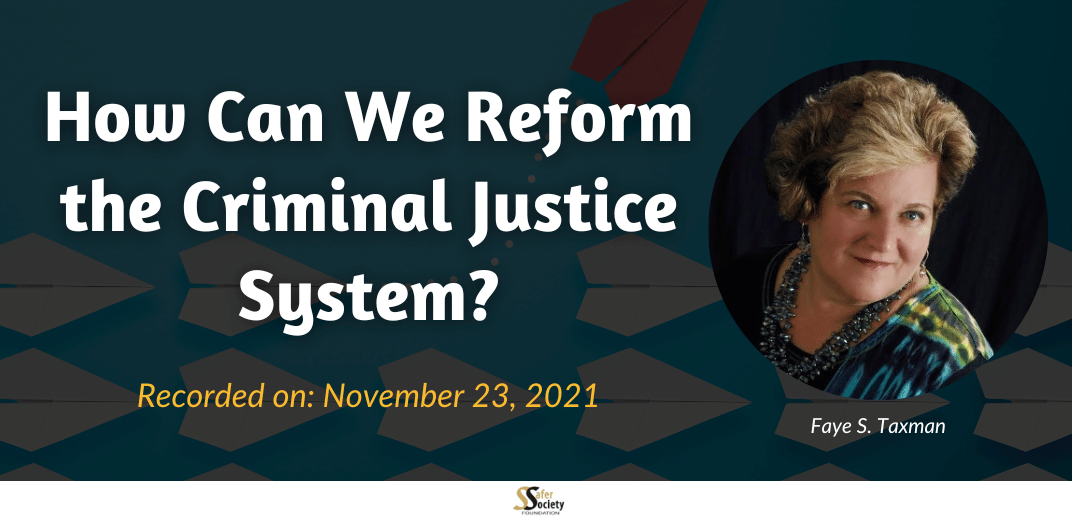
How Can We Reform the Criminal Justice System?
This webinar is for individuals interested in learning about restorative justice practices and their applications in different criminal legal contexts.
In 1967, President Johnson’s Commission on Law Enforcement and Administration of Justice outlined a massive set of recommendations (involving law enforcement, courts, corrections, etc.). Unfortunately, many of these recommendations were never implemented, and few actual reforms have occurred.
The largest issue has been the sheer volume of traffic through the legal system (often resulting in incarceration) and the culture of control and punishment, which are largely untouched by the reform efforts. The volume can be addressed by more citations which require fines and fees – or restorative justice – for misdemeanor offenses (broken-window types of offenses). Moving from public safety approaches to public health models will also alter the reach of the justice system; this is evident in the legal system’s handling of drug- and alcohol-related issues.
This webinar provides a brief exploration of these and related issues.
Who's Presenting

Faye S. Taxman
Faye S. Taxman, Ph.D., is a University Professor at George Mason University’s Schar School of Policy and Government, specializing in health service criminology. She is renowned for developing seamless systems-of-care models connecting the criminal justice system with health care services and reengineering probation and parole supervision. Dr. Taxman has conducted experiments to enhance treatment access, evaluate probation supervision models, and test interventions. She collaborates with various agencies and created the RNR Simulation Tool to improve practices. With over 200 publications, she leads the National Institute on Drug Abuse’s Justice Community Opioid Innovation Network. Dr. Taxman authored books like “Implementing Evidence-Based Community Corrections and Addiction Treatment” and received multiple awards for her contributions to criminology.
